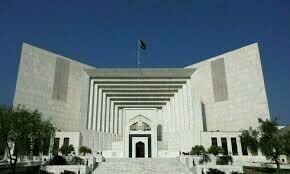NEW DELHI The re-election of India's Congress party should provide five years of political stability to push vital reforms and growth that could help lift millions out of abject poverty, economists say.
The centre-left Congress won its biggest mandate since 1991, confounding expectations the polls would throw up a fragile coalition that would be unable to take any controversial steps to further open up the economy.
“These are the best election results in nearly two decades,” said Rajeev Malik, economist at Australia's Maquarie Securities after the Congress-led alliance captured a projected 255-260 seats against 160 for the main opposition bloc led by the Hindu nationalist Bharatiya Janata Party.
More liberalisation to pull in foreign investment has long been prescribed by economists as the best way to boost growth in India and alleviate poverty in a country where more than 40 per cent of the 1.1 billion population live on less than 1.25 dollars a day.
But moves such as privatisation, introducing flexible hire-and-fire laws, opening up the retail and financial sectors to foreign investors and the creation of special economic zones have proved highly contentious.
Prime Minister Manmohan Singh is known as India'seconomic liberator for initiating the first wave of reforms in 1991 when he was finance minister. The so-called dream team of Singh and another arch reformer, P. Chidambaram, who held the finance portfolio for nearly all the government's most recent five-year mandate, soft-pedalled on major structural reforms. They focused instead on populist measures such as a national rural jobs scheme and massive farm loan waivers as they walked the tricky tightrope of coalition politics.
India's stock market was expected to soar Monday on the election results. Analysts said they expected the government to give an indication of its reform intentions in the budget due in the next couple of months.
At the same time, economists stressed the government could not afford any fiscal blowout in spurring India's growth, which is slowing for the first time in close to a decade as a result of the global recession.
Authorities estimate growth for the fiscal year just ended in March was about 6.5 per cent after expansion of nine percent the previous year. They expect it to slow to around 6.0 per cent.
Congress has promised more fiscal stimulus but global ratings agencies say too much spending could jeopardise India's already precarious investment grade credit rating, which is just one notch above “junk.” The national fiscal deficit for last year was six percent of GDP -- more than double the target -- and around 11 percent if the states' deficits are included, making it among the world's highest.
“India faces considerable challenges in balancing the need for short-term stimulus measures” and putting its public finances in order, said James McCormack, head of Asia Sovereigns at Fitch Ratings.—AFP











































Dear visitor, the comments section is undergoing an overhaul and will return soon.